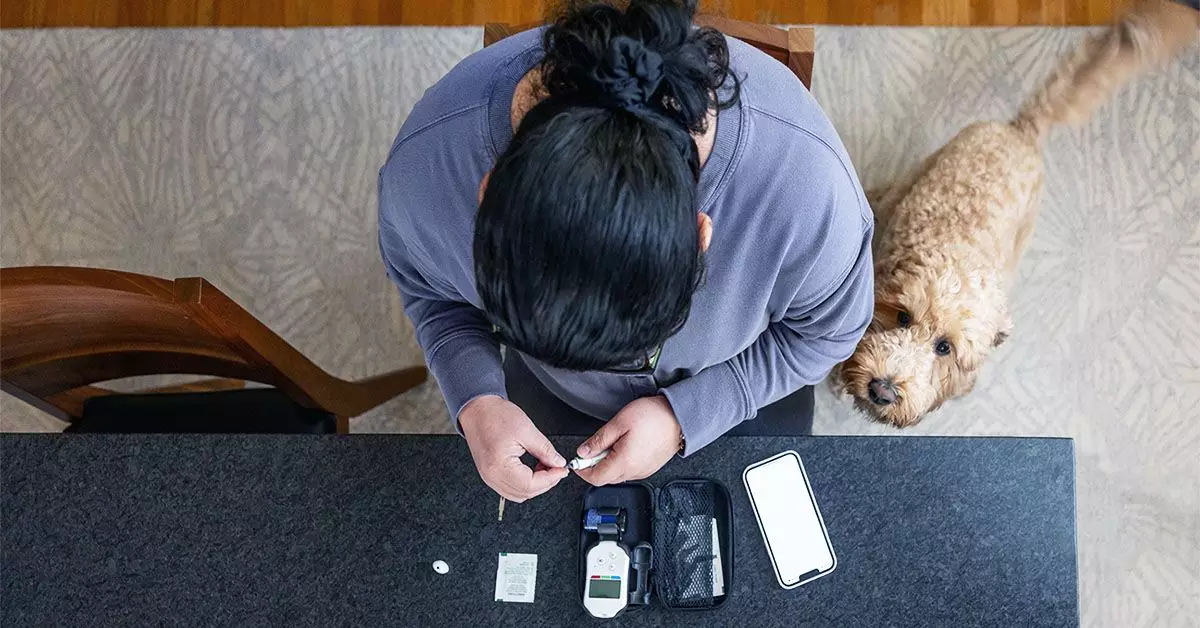Chemotherapy is a powerful tool in the fight against cancer, but it comes with a host of side effects that can complicate existing health issues, particularly for individuals living with diabetes. One critical area affected by chemotherapy is blood sugar regulation. Research indicates that chemotherapy can exacerbate blood glucose levels, leading to hyperglycemia, a condition where blood sugar rises above normal levels. This can present unique challenges for patients, especially those already managing diabetes. Understanding how chemotherapy influences insulin sensitivity and blood sugar levels is essential for effective management and overall well-being during treatment.
For patients receiving chemotherapy, insulin management becomes paramount. Those already on insulin therapy may find that their usual dosage needs adjusting due to chemotherapy’s effects on blood sugar levels. Interestingly, individuals with diabetes who were previously managing their condition without insulin may find it necessary to initiate insulin therapy during their treatment. This adjustment requires ongoing consultation with healthcare professionals to determine the precise insulin type and dosage necessary to maintain optimal blood glucose levels.
Dietary adaptations also play a crucial role in blood sugar management during chemotherapy. Maintaining a regimented eating schedule is vital, as fluctuating meal times can lead to unstable blood glucose levels. Patients are encouraged to consume smaller, more frequent meals instead of three large ones to mitigate the impact of dietary changes. This strategy is particularly helpful for those experiencing nausea—a common side effect of chemotherapy.
Eating well-balanced meals that are low in sugar and simple carbohydrates can help patients maintain stable blood sugar levels. It is advisable to monitor carbohydrate intake closely, as the body metabolizes them into glucose. Consulting with a registered dietitian experienced in oncology can provide tailored dietary advice, helping patients navigate the nuances of nutrition during cancer treatment.
Hydration is another critical factor in blood sugar management during chemotherapy. Staying adequately hydrated does not only support general health but also minimizes the risk of dehydration, which can further complicate blood sugar management. Patients are advised to increase their water intake, particularly in warm weather or during increased physical activity. Regardless of their circumstances, opting for water over sugary beverages can promote stable blood glucose levels.
Physical activity is beneficial for insulin sensitivity, promoting glucose uptake by the cells. Yet, many chemotherapy patients experience fatigue or other side effects that can hinder regular exercise. The Centers for Disease Control and Prevention (CDC) recommends a target of 150 minutes of moderate physical activity weekly. Patients may consider breaking this down into smaller increments, such as a ten-minute walk each day, to make it less daunting. Engaging in gentle exercises can enhance well-being and help maintain a healthy weight during treatment. Coordinating with the healthcare team can yield effective strategies for integrating physical activity into the daily routine.
For effective diabetes management during chemotherapy, consistent monitoring of blood sugar levels is crucial. Patients are advised to check their blood glucose several times a day, including before meals and before bedtime. This practice allows individuals to identify patterns, recognizing how food, medication, and physical activity influence their blood sugar levels. Having a good blood glucose monitor is essential, and working closely with healthcare professionals can provide guidance on the best usage practices.
Frequent monitoring can also alert patients to any concerning symptoms. If blood sugar levels remain unexpectedly high or low, or if they experience symptoms like extreme fatigue, tingling sensations, or weakness, it is vital to contact healthcare providers immediately. Prompt action can prevent serious complications and ensure that treatment continues smoothly.
Beyond managing blood sugar levels, addressing the potential complications of chemotherapy is essential. Studies have shown that uncontrolled hyperglycemia can impair the effectiveness of chemotherapy, potentially diminishing treatment outcomes. This exacerbates the importance of proactive blood sugar management for those living with diabetes or at risk for developing diabetic symptoms during treatment.
Managing blood sugar levels during chemotherapy requires vigilant approach combining medical guidance, dietary adaptations, hydration, and physical activity. Individuals undergoing cancer treatment should engage in open dialogue with their healthcare teams to develop a comprehensive management plan tailored to their unique needs. By effectively managing blood sugar, patients can improve their overall health and enhance the efficacy of their cancer treatments, ultimately leading to better outcomes and a higher quality of life through a challenging time.

